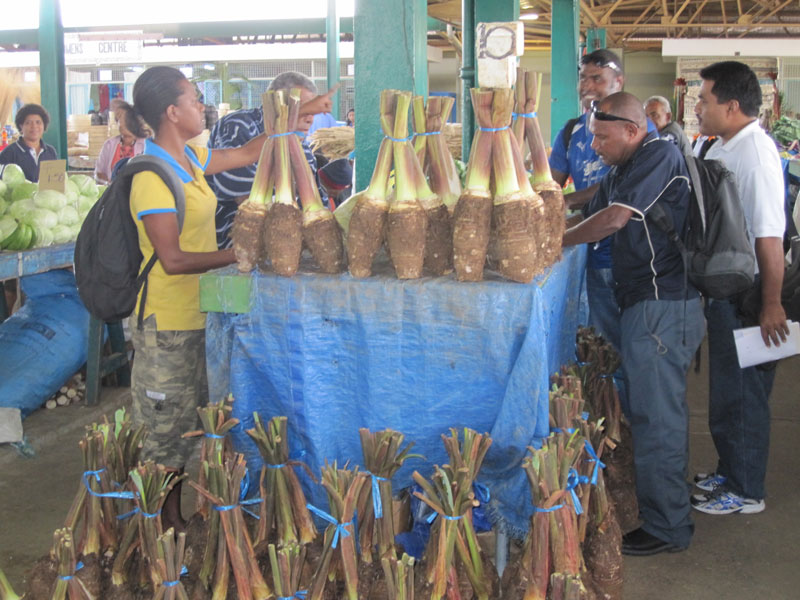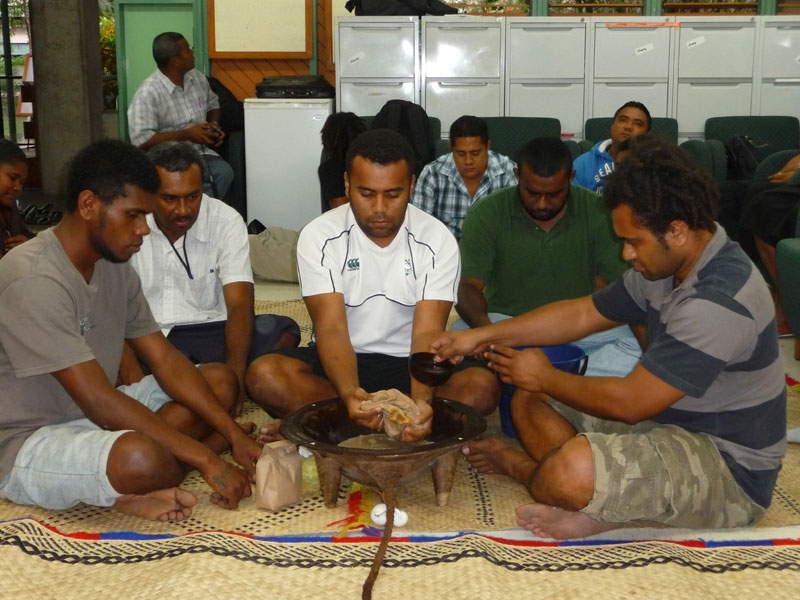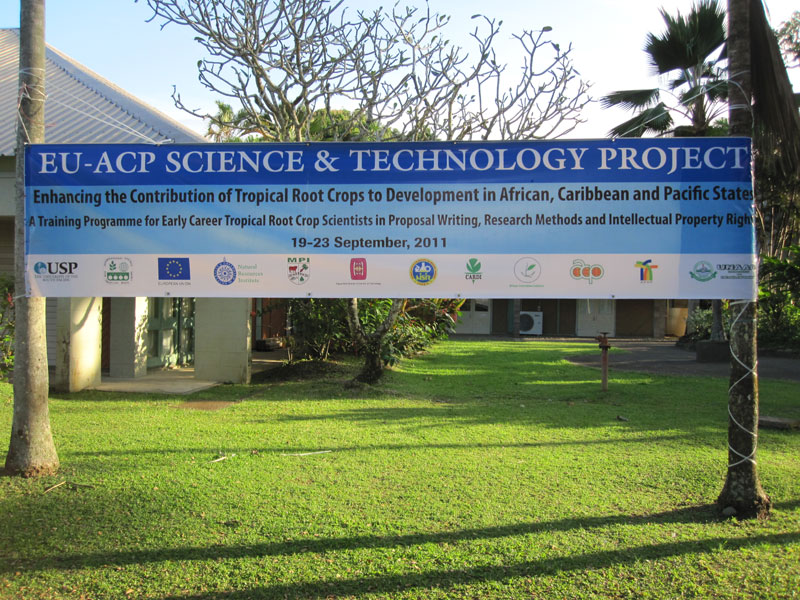
A very successful training course on proposal writing, research methods and intellual property rights for early career researchers and extensionists working with tropical root and tuber crops from six Pacific nations was held at the University of the South Pacific in mid-September 2011 by an NRI-led team.
The course was one of eight being provided during the three-year ACP/EU Science and Technology project entitled "Science and Technology for Enhancing the Contribution of Tropical Root Crops to Development in ACP countries"(http://www.nri.org/projects/tropicalroots)". The project is implemented byNRI working in collaboration with the International Society of Tropical Root Crops (www.istrc.org) and research organisations from West, East and Southern Africa and the Caribbean. The week-long course, organised in Fiji in collaboration with University of the South Pacific's Institute for Research, Extension and Training in Agriculture, brought together participants from Fiji, Solomon Islands, Vanuatu, Tonga, the Cook Islands and Samoa.
 During the course participants had an opportunity to develop a research proposal and to consider appropriate research methods to use to undertake this research. Some were already familiar with using quantitative research methods for setting up experiments and analysing data from field trials and laboratory investigations but many were less familiar with undertaking qualitative research, such as the use of interview discussions with farmers, traders, processors and consumers to understand problems related to their field of research and to help make research more relevant to the sector's needs. The course included a fieldwork exercise in which participants visited Suva municipal market to interview traders as well as to a factory processing locally-grown cassava and taro into crisps. The importance of intellectual property rights in research was stressed and participants were introduced to how they might be able to patent their research outputs on root crops. Ethical issues in research were also included. Master classes by eminent local researchers and resource people complemented the training sessions.
During the course participants had an opportunity to develop a research proposal and to consider appropriate research methods to use to undertake this research. Some were already familiar with using quantitative research methods for setting up experiments and analysing data from field trials and laboratory investigations but many were less familiar with undertaking qualitative research, such as the use of interview discussions with farmers, traders, processors and consumers to understand problems related to their field of research and to help make research more relevant to the sector's needs. The course included a fieldwork exercise in which participants visited Suva municipal market to interview traders as well as to a factory processing locally-grown cassava and taro into crisps. The importance of intellectual property rights in research was stressed and participants were introduced to how they might be able to patent their research outputs on root crops. Ethical issues in research were also included. Master classes by eminent local researchers and resource people complemented the training sessions.  These provide an opportunity for participants to learn of the experiences of their seniors and to encourage them in launching a successful career. Participants were very enthusiastic about the training and reported that it was very practical and helpful.
These provide an opportunity for participants to learn of the experiences of their seniors and to encourage them in launching a successful career. Participants were very enthusiastic about the training and reported that it was very practical and helpful.
Not all the learning was one way, however. The trainers (including Keith Tomlins, Claire Coote and Aurelie Bechoff from NRI) and course organisers were honoured to be the guests at a traditional kava ceremony laid on by the Fijian participants and university students. The trainers were taught the significance of each stage of the ceremony and then invited to partake a coconut shell or two of the earthy liquid.

